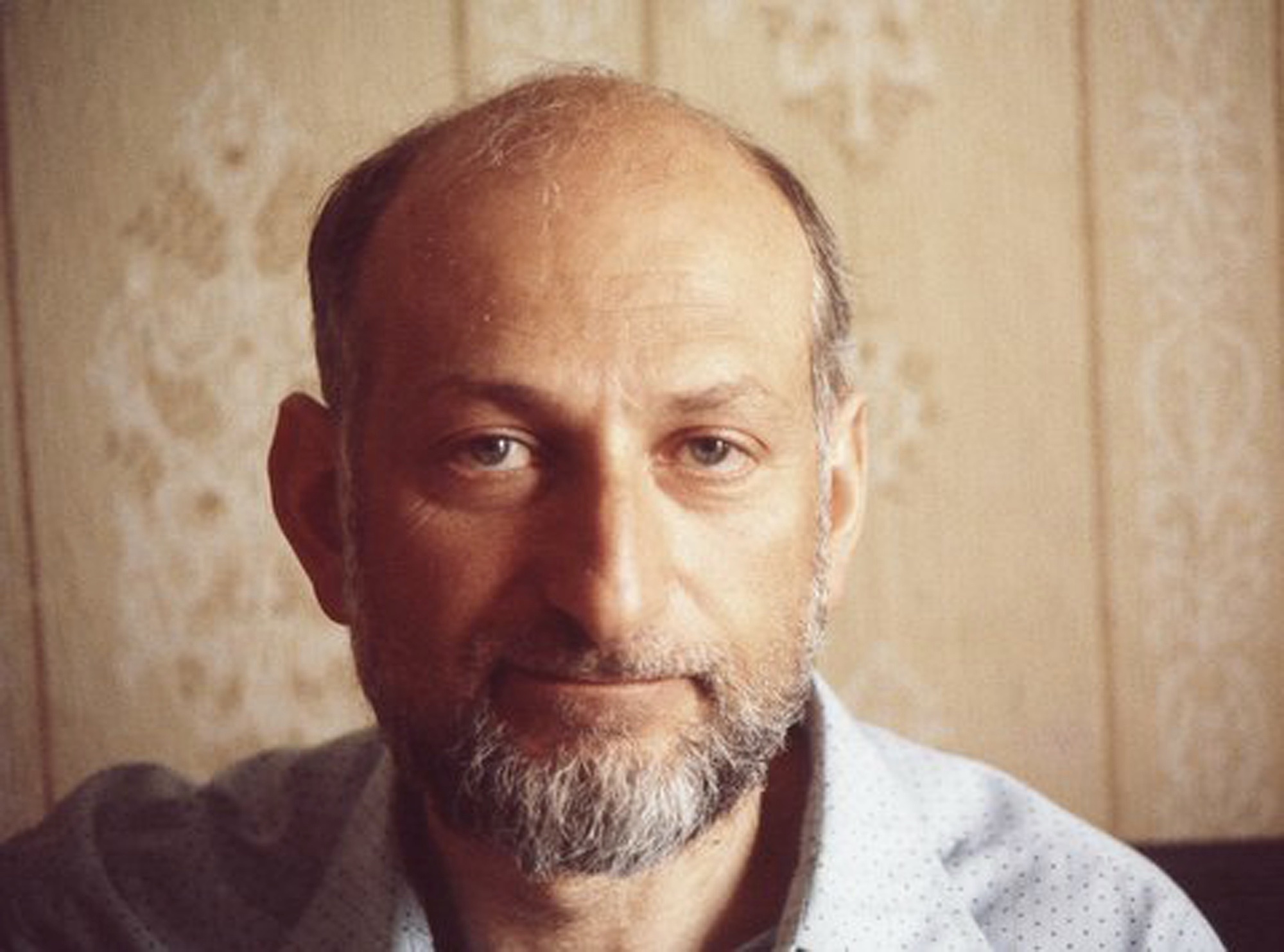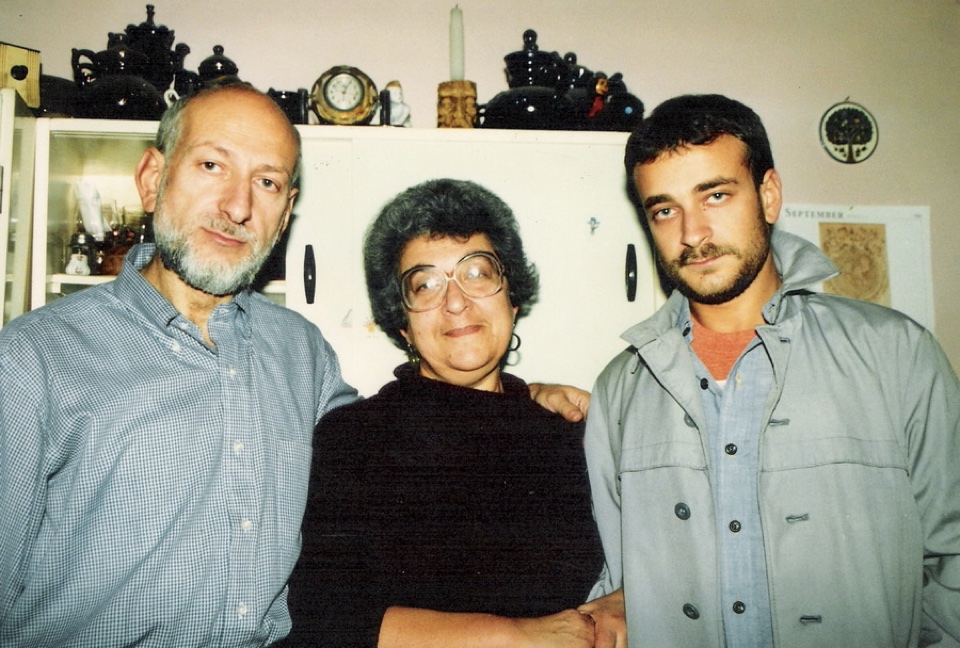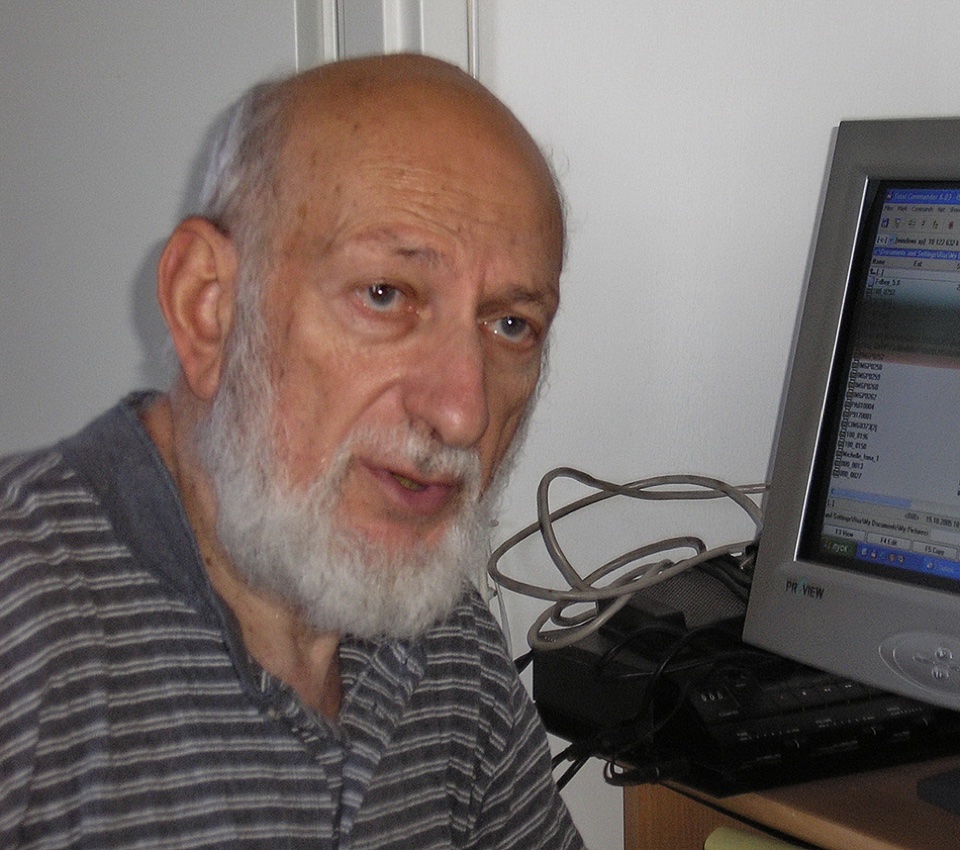
Aba Taratuta |

Michael Beizer
Aba Taratuta, former long-term refusenik, an important leader of the Soviet aliyah movement, and founder and director of the "Remember and Preserve" Association, passed away in Haifa on October 18, 2023.
Aba Taratuta was born on September 6, 1935 in Leningrad. His parents, Yaakov and Fania (née Epshtein), were born in Ukraine. In 1941 Aba was evacuated with his family to the Ural Mountain region. In 1944 the family returned to Leningrad where, as the only Jewish student in his class, he was constantly subjected to insults and beatings.
In 1958, Taratuta graduated from the Mathematics and Mechanics Department of Leningrad State University with a specialization in radio astronomy. The Pulkovo Observatory, where he wrote his thesis, would normally have employed him upon graduation. But since he was a Jew, he was not offered a job. Aba worked instead as a mathematical engineer at two defense research institutes until 1964. In 1960, he married Ida Avidon. From 1964 to 1972, Taratuta was a lead engineer at the All-Union Research Institute of Radio Electronics. He completed his doctoral dissertation on reliability theory in 1972, but because he was planning to make aliyah to Israel, he elected not to defend it. He also resigned from his position at the Institute. In 1973, Taratuta and his wife and son applied for an exit visa, but were denied "because of exposure to state secrets." As a refusenik, he was henceforth able to work only at jobs for which he was seriously overqualified: truck driver (1973-1974), elevator mechanic (1974-1977), ostensible secretary to mathematics professor Abram Kagan (1977-1981), and boiler operator (stoker) at a public bathhouse at Muzhestvo Square (1981-1987). Taratuta turned the bathhouse into a meeting hub and unofficial headquarters of Leningrad refuseniks.
During his 14 years as a refusenik, Aba served as a mainstay of the aliyah movement and Jewish cultural and communal life. He taught Hebrew, inspiring many of his students to also become Hebrew teachers. He participated in underground academic and legal seminars, which took place in his apartment. Taratuta oversaw the reproduction and distribution of samizdat materials (Hebrew textbooks, Israeli literature in Russian, and, beginning in 1985, the Leningrad Jewish Almanac). He established an underground community library of Jewish books and periodicals.
Nor did he shy away from more openly political activity. He supportively “adopted” imprisoned aliyah activists Mark Dymshits, Boris Kalendarev, and Roald Zelichenok, and even visited them in custody. Taratuta took part in demonstrations by refuseniks at the Reception Office of the Presidium of the Supreme Soviet in Moscow on Dec. 22, 1974, at the entrance to the Leningrad Party Committee building in Smolny on March 23, 1987, at Dictatorship of the Proletariat Square on Aril 23, 1987, and in front of the Leningrad City Council building on June 10, 1987.

Taratuta maintained close ties with overseas organizations and individuals which advocated for Soviet Jewry. He hosted their emissaries in his two-room apartment on Kosmonavtov Avenue. He engaged in extensive correspondence and telephone conversations with their activists (especially Lynn Singer, Chair of the Long Island Committee of the Union of Councils for Soviet Jewry). He met with American diplomats and political figures such as U.S. Vice Consul in Leningrad Daniel Grossman and Congressman Charles Vanik. He utilized these opportunities to send numerous refusenik petitions to the West, where they were published. He also served as a conduit for distributing gifts and money to needy refuseniks.
Taratuta was persecuted for his activism. He was fired from jobs, had his home phone line cut three times, was summoned for interrogations by the Prosecutor’s Office, and subjected to intimidating "conversations" with KGB officers on numerous occasions. His apartment was searched by the KGB in April 1980. He was also repeatedly defamed in the Leningrad press (see: A. Kostrov, "Professional Slanderer," Vecherny Leningrad, May 20, 1980; B. Kravtsov, "Cultural Peddlers with Skeleton Keys," Leningradskaya Pravda, April 19-20, 1983; "Peddlers of Zionism," Leningradskaya Pravda, August 8, 1984; "With Placards on Their Chests," Vecherny Leningrad, March 24, 1987, among others). The KGB prevented Taratuta's son Mikhail, a promising artist, from enrolling in university. He was forced to serve in a construction battalion in the Soviet army as a punitive measure against his father.
In Israel, Aba and Ida Taratuta settled in Haifa. Aba worked as a research engineer in the Space Research Department at the Technion from 1988 to 2000, and later taught math in the Israeli school system. In 2002, Taratuta, together with other former refuseniks, co-founded the non-profit "Remember and Save" Association in order to collect and preserve documents connected to the Jewish national movement in the USSR. He served as its executive director until his passing. The Association initiated and oversaw the 2007-2008 exhibition at the Diaspora Museum in Tel Aviv entitled "Jews of Struggle: The Jewish National Movement in the Soviet Union." The exhibition attracted thousands of visitors. Aba and Ida also co-authored the memoir “Cheerful Memories / Troubled Years. A Story of a Refusenik's Family in Leningrad and Their Struggle for Immigration to Israel” (published in Russian in 2016, in English in 2019, and in Hebrew in 2021).
Aba’s wife Ida, née Avidon (1930-2017), was an English teacher and translator. Their son Mikhail (born 1961) is an artist and designer living in New York.
Those fortunate enough to have known Aba Taratuta well will forever remember him as an intelligent and unyielding comrade, a reliable friend, and a charming person with a keen sense of humor.
(Translated by Reuven Resnick)
